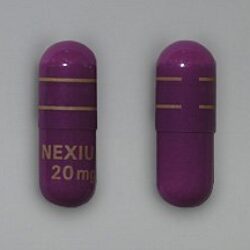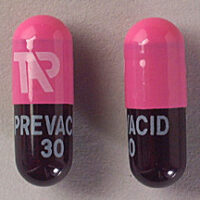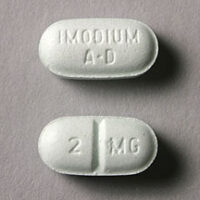Description
Drug Uses
Nexium decreases the amount of acid made in the stomach and is used to treat gastro esophageal reflux disease (GERD). Nexium is treats the symptoms of GERD, allowing the esophagus to heal, and prevent further damage to the esophagus. It is also used in combination with other medications to prevent stomach ulcers. Nexium is in a class of medications called proton pump inhibitors.
How Taken
Nexium comes as an extended release (long acting) capsule for oral administration. The general dosage for Nexium is a capsule a day, taken at least one hour before a meal. It is recommended to take Nexium at around the same time every day. The capsule should be swallowed whole. If you have difficulty swallowing capsules, you can open the capsule, and the granules can be sprinkled on applesauce and swallowed immediately. The granules should not be chewed or crushed. Follow your doctor`s directions on your prescription label. Don not take more of this medication or for a longer period of time than prescribed by your doctor.
Warnings/Precautions
You may not be able to take Nexium, or may need a dosage adjustment or monitoring during treatment if you have a liver disease. There have been reported serious and sometimes fatal hypersensitivity (anaphylactic) reactions in patients on penicillin therapy. If you have a history of penicillin hypersensitivity and/or a history of sensitivity to multiple allergens these reactions are more likely to occur. Pseudo membranous colitis has been reported with nearly all antibacterial agents, including clarithromycin and amoxicillin, and may range in severity from mild to life threatening. It is important to consider this diagnosis in patients who present with diarrhea subsequent to the administration of antibacterial agents. Nexium is in the FDA pregnancy category B. Which means that animal–reproduction studies have not demonstrated a fatal risk but there are no controlled studies in pregnant women, or animal–reproduction studies have shown an adverse effect (other than a decrease in fertility) that was not confirmed in controlled studies in women in the first trimester (and there is no evidence of a risk in later trimesters). It is not known if Nexium d passes into breast milk. Therefore do not take Nexium without consulting your doctor if you are pregnant, likely to become pregnant or breastfeeding.
Missed Dose
If you miss a dose take it as soon as you remember. However, if it is almost time for the next dose, skip the Missed Dose and continue your regular dosing schedule. Do not take a double dose to make up for a missed one.
Possible Side Effects
Some of the Possible Side Effects of Nexium are– headache, constipation, cough, or diarrhea. Contact your doctor if you experience any of those symptoms. You should seek emergency medical help if you experience– throat pain, chest pain, severe stomach pain, or coffee ground vomit, an allergic reaction (rash, itching, swelling, dizziness, trouble breathing). Contact your doctor or pharmacist if any other side effects occur.
Storage
Store this medication at room temperature 15–30°C (59–86°F). Keep away from children and excess heat and moisture (not in the bathroom).
Overdose
If overdose is suspected seek medical attention immediately. Some of the Nexium overdose symptoms are– drowsiness, shortness of breath, tremor, loss of coordination, and seizures.
More Information
Notify your doctor about all other medications you are taking. Some medicines or medical conditions may interact with Nexium.
Disclaimer
This is only general information, it does not cover all directions, drug integrations or precautions. You should not rely on it for any purpose, it does not contain any specific instructions for a particular patient. We disclaim all responsibility for the accuracy and reliability of this information. We`re not responsible for any damage.




Reviews
There are no reviews yet.